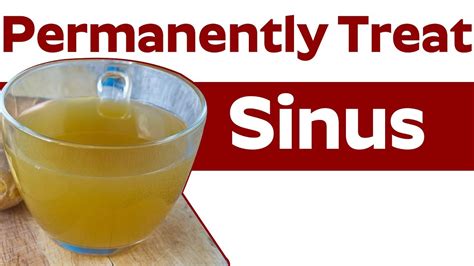How to Cure Sinus Infections Permanently: A Holistic Approach
Sinus infections, or sinusitis, are a common ailment causing discomfort and frustration. While a permanent "cure" might not be achievable in all cases, managing and significantly reducing the frequency and severity of sinus infections is possible through a holistic approach. This involves a combination of lifestyle changes, medical treatments, and preventative measures. This article explores practical strategies to help you achieve lasting sinus relief.
Understanding Sinus Infections
Before diving into solutions, understanding the root cause is crucial. Sinus infections occur when the cavities around your nasal passages become inflamed and swollen, often due to viral, bacterial, or fungal infections. Allergens, irritants, and structural issues can also contribute. While antibiotics can target bacterial infections, many sinus infections are viral and require different management strategies.
Common Symptoms of Sinusitis:
- Congestion: A stuffy nose is a hallmark symptom.
- Facial Pain/Pressure: Pain in the cheeks, forehead, or around the eyes.
- Headache: Often accompanied by sinus pressure.
- Postnasal Drip: Mucus dripping down the back of the throat.
- Cough: Especially at night.
- Reduced Sense of Smell (anosmia): Difficulty smelling.
- Fever: More common in acute infections.
Holistic Strategies for Long-Term Sinus Relief
A multifaceted approach yields the best results. Here's a breakdown of effective strategies:
1. Lifestyle Modifications:
- Hydration: Drink plenty of water throughout the day to thin mucus and aid drainage. Aim for at least eight glasses.
- Humidification: Dry air exacerbates sinus issues. Use a humidifier, especially during colder months, to add moisture to the air.
- Dietary Changes: Reduce inflammatory foods like processed foods, dairy, and excessive sugar. Incorporate anti-inflammatory foods such as fruits, vegetables, and healthy fats. Consider eliminating potential allergens from your diet.
- Saltwater Rinse: Regular nasal irrigation with a neti pot or saline spray can help clear nasal passages and remove irritants. Use distilled or sterile water to prevent infection.
- Sleep Hygiene: Adequate sleep strengthens your immune system, crucial for fighting infection. Aim for 7-9 hours of quality sleep.
- Stress Management: Chronic stress weakens the immune system. Practice stress-reducing techniques like yoga, meditation, or deep breathing exercises.
2. Medical Interventions (when necessary):
- Over-the-counter medications: Decongestants (like pseudoephedrine or phenylephrine) can provide temporary relief from congestion, but overuse can be detrimental. Pain relievers like ibuprofen or acetaminophen can manage pain and fever.
- Prescription Medications: Your doctor may prescribe antibiotics for bacterial infections, corticosteroids for inflammation, or antifungal medications if a fungal infection is suspected.
- Surgery: In rare cases, surgical intervention might be necessary to address structural issues like nasal polyps or deviated septum that contribute to chronic sinusitis.
3. Preventative Measures:
- Allergen Control: Identify and minimize exposure to allergens like dust mites, pet dander, pollen, and mold. Regularly clean your home and use air purifiers if necessary.
- Avoid Irritants: Stay away from cigarette smoke, strong perfumes, and other airborne irritants that can trigger or worsen sinus inflammation.
- Boost Immunity: A strong immune system is your best defense. Eat a balanced diet, exercise regularly, and get enough sleep.
Conclusion: Managing, Not Just Treating, Your Sinuses
While a permanent cure for sinusitis might not always be attainable, significantly improving your condition and preventing future infections is certainly within reach. By adopting a holistic approach that combines lifestyle changes, medical interventions when necessary, and proactive preventative measures, you can take control of your sinus health and enjoy long-term relief. Remember to consult with your doctor for personalized advice and treatment plans, especially if your symptoms are severe or persistent.
